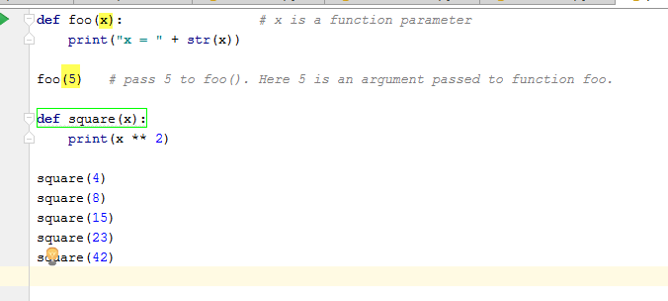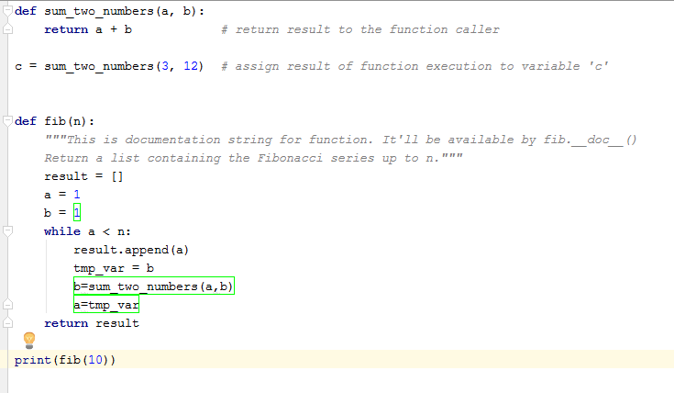07 Functions
7.1 Python Functions
A function is a block of organized, reusable code that is used to perform a single, related action.

7.1.1 Define a function
User def keyword to define a simple function
def hello_world():
print("Hello, world!")
# call the function Hello_world
hello_world()
7.1.2 Function with parameters

7.1.3 Function return with value

7.2 Practice function
7.2.1 Write a function return a value
Please write a function with below requirement
- when give a number, it will return a number which is sum of 1 to the input number
- Ex. Input 5, the return will be 1+2+3+4+5 =15
hint:
result=0
for x in range(5):
v=x+1
result=result+v
7.2.2 Function call another functions
- give a number N bigger than 10
- the function will return the result of ((1)+(12)+(123)….(1234…*N))
- hint, you may need write two functions, one handle (1+2+3+ … +N) and another one handle (123…N)
7.2.3 Recursion function
Do not use for loop, and make the function to get result same as 7.2.1
- A recursion function will call it self
- There will be a condition to return the value stop the loop.
#define recursion function addmore
def addMore(n,max):
if(n==max):
result= n
else:
result=n+addMore(n+1,max)
print ("n=",str(n)," result=",str(result))
return result
#end function addMore
r=addMore(1,100)
print(r)